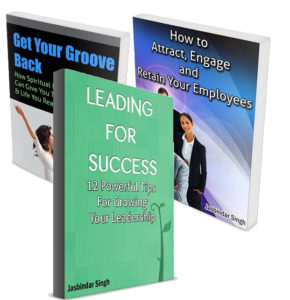 Been out of your comfort zone lately? Can you recall how you reacted and its impact on your problem-solving or decision making? My business coaching client, the CEO of a SME, related the fascinating story of his recent trip to China where he met up with other key players from around the globe. The city they visited was no Beijing or Shanghai. It was smaller in size and his hotel was in an area specified as the “government zone.” As foreign nationals they were advised not to venture out of this. However, in need of much exercise and fresh air, my client did venture forth one day and soon found himself walking beyond the edges of familiarity. He noted that suddenly the scenery had changed dramatically.
Been out of your comfort zone lately? Can you recall how you reacted and its impact on your problem-solving or decision making? My business coaching client, the CEO of a SME, related the fascinating story of his recent trip to China where he met up with other key players from around the globe. The city they visited was no Beijing or Shanghai. It was smaller in size and his hotel was in an area specified as the “government zone.” As foreign nationals they were advised not to venture out of this. However, in need of much exercise and fresh air, my client did venture forth one day and soon found himself walking beyond the edges of familiarity. He noted that suddenly the scenery had changed dramatically.
There were heaps more cars – unlike the few taxis entering the government zone with special permission to drop-off visitors at their hotels – loud noise and beggars he hadn’t seen before. My client was intrigued as he found himself in the hustle bustle of what looked like the real China. He kept walking noticing things like groups of older men huddled together over a board game, the many shops with their varied offerings and then the sudden, odd feeling as he realized that he was the only “white man” around. Almost in that instant, he became aware that he was very much out of his comfort zone and that he probably needed to return.
My client’s story got us thinking about how we react when we are out of our comfort zone – or CZ, as I call it! Can you recall the last time you were out of your CZ and what your thinking pattern was? How did you feel? What did you do? The challenge is that most of the time we are totally unconscious of our behaviour and reactions. We tend to go into an automatic, default reaction as the brain kicks into a survival, threat mode. However, by being aware through being mindful and recognizing when we are out of our comfort zone, gives us a greater choice to do something different.
What is your default mode?
It’s easy to say, “face your fear,” “take more risks” or “just do it!” But before we can do this, tuning into our own individual reaction helps us understand our engrained brain-behaviour pattern and then create some new pathways.
My client had been faced with a choice. Should he carry on exploring or return to the safety of his hotel? He found himself thinking that that no one in his team knew where he was and that there were probably very good reasons why he shouldn’t be where he was – so he returned.
Later as he narrated the story he expressed misgivings about not giving himself permission to explore and discover new things. He had felt excitement along with some fear. He began connecting this experience to his decision making in business especially when there was newness and ambiguity present. He realized that on a day to day basis, he tended to keep within his comfort zone – playing it safe but from time to time he would also take that big leap. What was interesting was that, each time he did, it paid off immensely.
Being out of our comfort zone can bring up all sorts of reactions. I saw a manager who reacted by becoming very loud, dominant and authoritative when deep down he was feeling rather vulnerable. Equally, I have seen team members who became withdrawn and disengaged. What have you noticed amongst your team members and or groups that you are part of? As a manager, how do you coach a direct report who has been put out of her comfort zone? Do you know how much autonomy versus guidance they need to succeed?
5 leading steps in moving beyond your comfort zone
1) Become more mindful of your thoughts, feelings and reactions when you find yourself operating out of your CZ. Can you give these a name? I notice my own feeling is one of anxiety followed by a strong need to find further information that could help. The underlying thought is “what if I haven’t got the resources to deal with this situation or worse – got it wrong.” Being self aware enough to identify and name what is going on is a key part of leadership effectiveness.
2) Notice how you behave when out of your CZ – what are you doing and how are you coming across in that moment? If you are a manager – are you able to take responsibility for your feelings and call it as is – at the very least to yourself – or do you end up blaming and attacking others and making them feel in the wrong? Do you become angry, withdrawn or do you take the best action that you can in the moment? Self-regulation and communicating with respect and dignity are vital leadership qualities in maintaining your own reputation and integrity and for the outcomes you get.
3) How about your body language? What do you know about how you might be coming across non-verbally? If you are saying one thing and your body language is another, it’s your body language that will be read by others and be the winner. Self awareness helps being powerfully present in the moment and making the best, right decision at the time. Authentic leaders can still be strong while feeling vulnerable.
4) Consider how your reactions may be affecting those around you? For example, is it helping them to step out or get more into a “no risk” mode? Is your reaction helping your team be more experimental or shutting them down? Don’t underestimate the viral nature of your leadership impact across the organization.
5) With a greater, more conscious feel and awareness about your automatic reactions, you could now choose to create a new neural pathway through a different approach! David Rock’s latest book, ” Your Brain at Work” will help you here. Being vulnerable is human – we all have our strengths and weaknesses. Growing and building our capacity, with mindfulness is one of the many exciting gifts that the leadership journey offers.
Jasbindar Singh is business psychologist, leadership coach, author and speaker.Get in touch today to discuss how Jasbindar can help you or your company get the result you want. Follow Jasbindar on twitter.






 Follow Jasbindar on Twitter
Follow Jasbindar on Twitter



